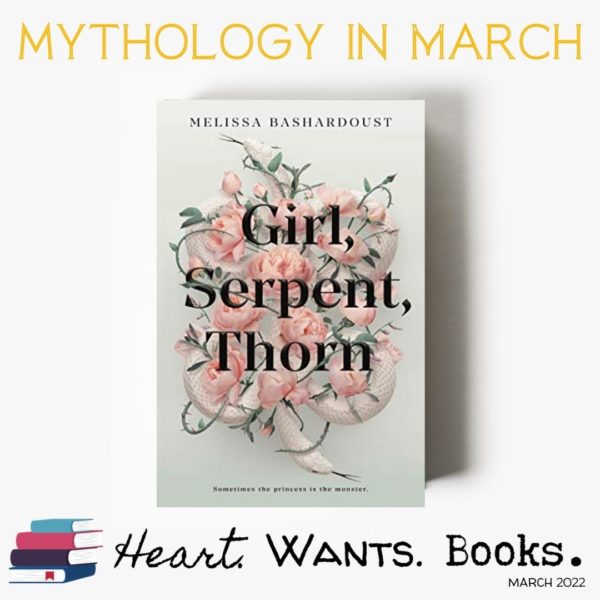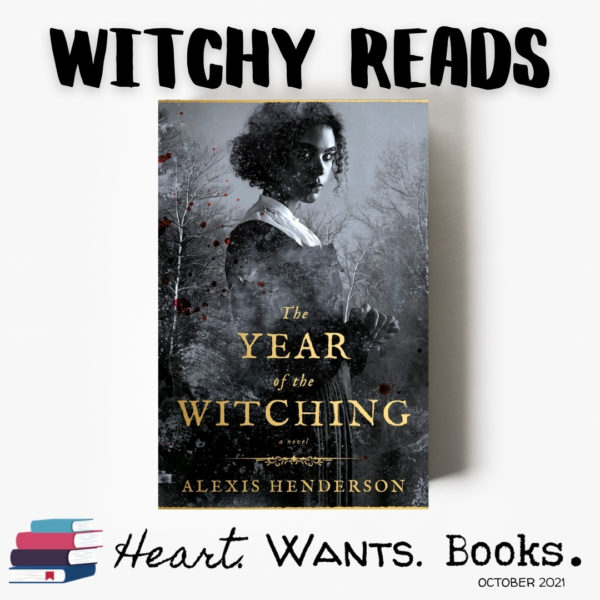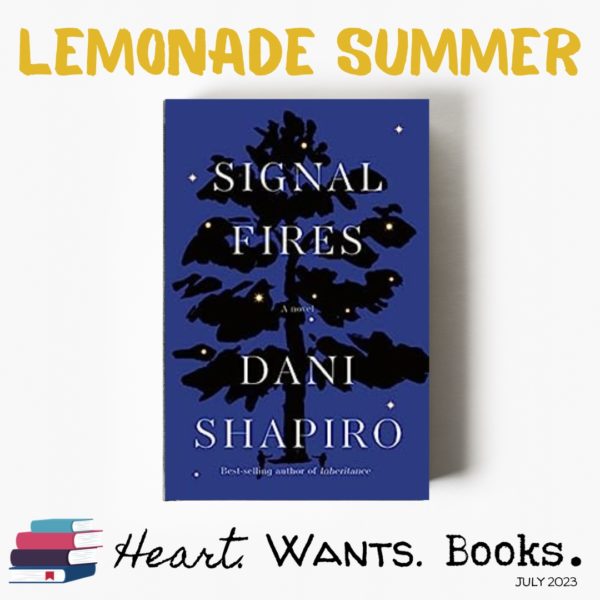A Collection of Non-Fiction Titles March 15, 2021
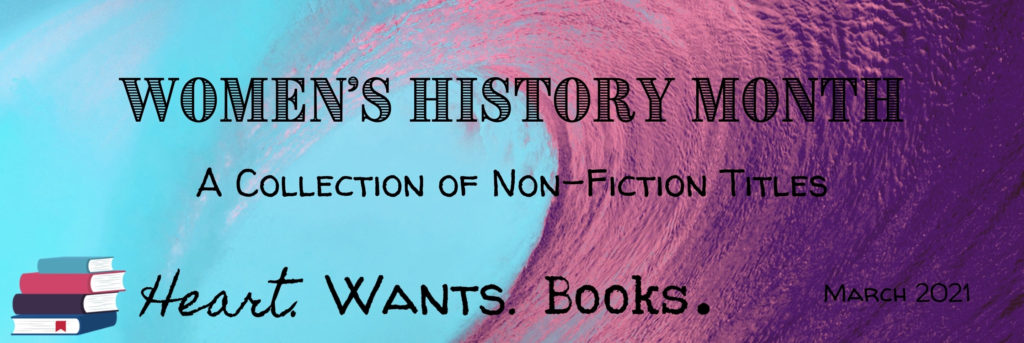
The following post includes affiliate links. More details here. As you’re doing your Amazon shopping, we’d be ever so grateful if you’d use our affiliate link to do so as it helps pay the bills around here!
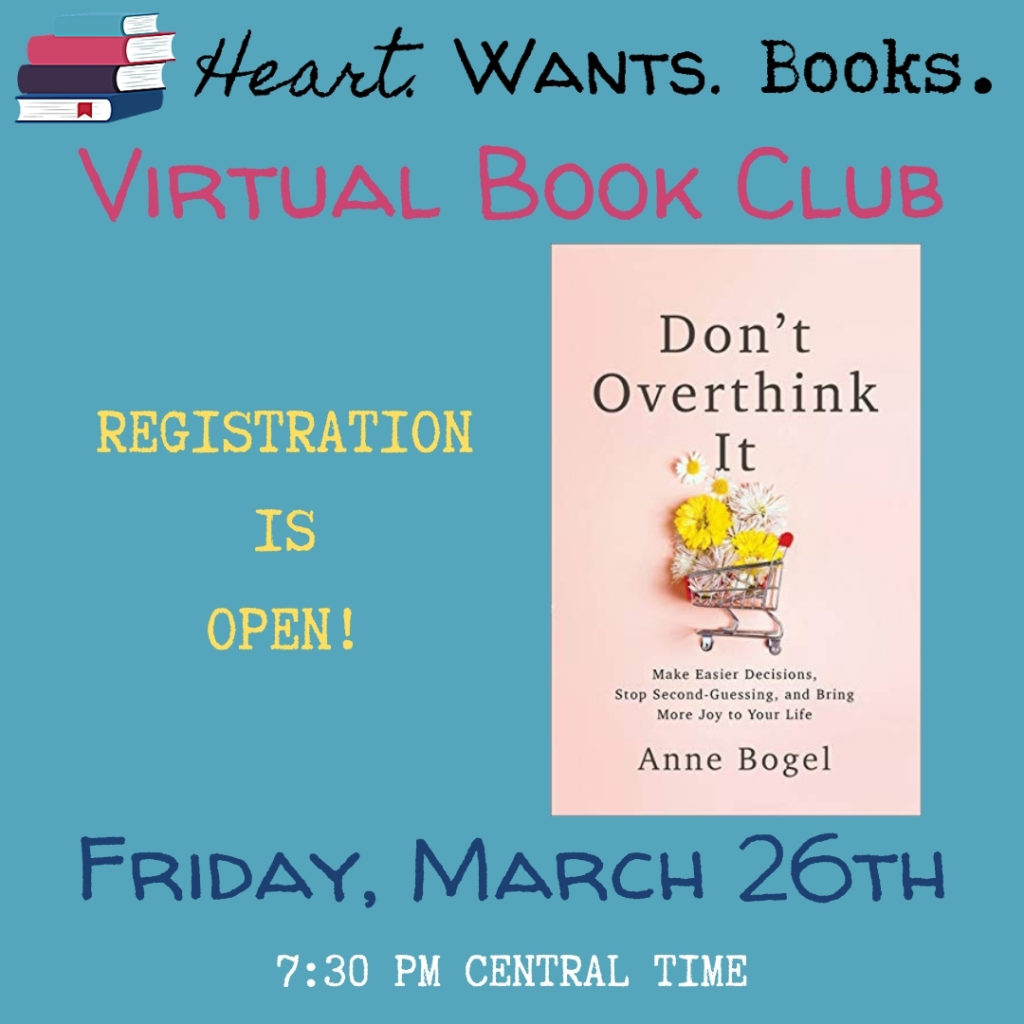
It’s no secret that I have struggled to find nonfiction titles that keep me engaged. I’ve purposefully sought out some, embraced others whose titles or authors have landed in my life, and I’ve stumbled upon some titles that were fantastic. I’ve also found some authors whose names will always demand my attention because their words speak to me as a person. It should surprise no one that Anne Bogel is one of those authors. I read her blog and I listen to her podcasts, so purchasing her books is solidly in my “things to not overthink” category. If you’re interested in learning more from this woman who is a muse to my reading life, then please sign up here for Virtual Book Club on Friday, March 26th at 7:30 p.m. CST when we’ll discuss Don’t Overthink It: Make Easier Decisions, Stop Second-Guessing, and Bring More Joy To Your Life by Anne Bogel so we can learn more from Anne together.
I may struggle with nonfiction, but Ashley does not. So when we were deciding what books and topics to bring you during Women’s History Month, I fully expected she’d have some nonfiction titles in mind. The surprise for me was that it wasn’t for book reviews, at least not in our usual way. Sorry not sorry for the number of titles we’re throwing into the universe this month or today. Today, we’ve got nonfiction titles to share today covering the needs of three generations of women. While technically Gen X may be the generation that’s getting all the attention for raising kids and caring for parents at the same time, we elder millennials are right there with you Gen X folks (literally in my family, as my brother and I have both generations covered). I hope you find a title today that speaks to you or someone you love, and I hope you’ll share a title that has already spoken to you with us in the comments.
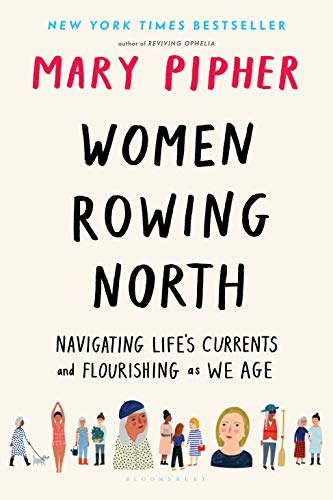
Am I the only one who can’t remember sometimes why I put a book on hold or recommended it to the library? Yes, cool. So, that’s the story with Women Rowing North by Mary Pipher, but y’all, this was good and it’s important. Pipher is a psychologist writing to her peers – women who are transitioning from middle to old age (she’s 70ish). I’m half that age, and read and adored this title. Perhaps it’s that my mother is in the target demographic (yes, that means she’s twice as old as me right now, which means she was pregnant with me at my age *shudder*), or perhaps it’s that there are a lot of important truths and life lessons in this book. I’m going with both.
Women Rowing North reads like a long (super long at 270 or so pages) letter to a friend, filled with stories and anecdotes of the author and others. It’s a celebration of the achievements of life and the joy those can bring as one “rows north.” Some stories are tragic, but they are filled with hope and love, leaving you with only those feelings, because when a life is well lived, even its end can be a celebration. Included are things to appreciate, things to realize, and truths to own. This is advice and stories to help women, people really, be their true selves and have peace in that, while living their best lives and rejoicing at all that has come to pass and all that may yet.
I never thought I’d thoroughly enjoy and be uplifted by a book about aging, but I am. I give Women Rowing North a solid four stars and I’ve already recommended it to my mom. I don’t plan on rereading this any time soon, but I hope to do so when I’m closer to the target audience, or maybe even next time I find myself in one of life’s major transitions. In the meantime, I’ll be checking out some of Pipher’s other titles, which have different themes because she’s a lovely writer and speaks glorious truths in a powerful way.

On the opposite end of the spectrum, I also read Raising Worry-Free Girls: Helping Your Daughter Feel Braver, Stronger, and Smarter in an Anxious World by Sissy Goff. This was not on my radar or TBR list until I heard the author’s conversation with Annie F. Downs on That Sounds Fun Podcast. Goff is a counselor, and Downs is a former teacher of fourth and fifth graders, so as a parent of a kindergartner and third grader with a host of other young people in my life, I was delighted to hear them talk about raising brave kids! Do know, Goff does counsel from a Christian perspective, and that is included in the book. Faith is included in her tools she offers parents and girls (in the book it’s girls, but it’s really relatable to boys too), along with Scripture too.
Even though Raising Worry-Free Girls is intended to be the parent’s guide to helping their children defeat the Worry Monster (along with Braver, Stronger, Smarter: A Girl’s Guide to Overcoming Worry and Anxiety – the companion for girls, and the brand new Brave: A Teen Girl’s Guide to Beating Worry and Anxiety), I learned a lot about me and my mom too. Goff talks about statistics of children who worry and their parents. As an enneagram 6, I feel like worry is ingrained in me by my mental committee, and I’ve seen at least some of the ways the worries of my parents and grandparents have manifested themselves throughout the years. Given all this, statistically, it’s likely my children will worry as well, but there is hope. There are tools included in the pages of this quick read (200+ pages) that I can use and I can guide my boys and other children in my life through as they demonstrate a need for that. My favorite part though, that was the positive affirmation because we’ve been doing some of the tools for a while now and they work when we use them well. I gleaned a lot from this plus even though I wasn’t the intended audience. If you are a person of faith, or one who can read through advice from a faith perspective, and have young people in your life, I highly recommend reading one of Goff’s parenting titles, whether it’s this one or another. I’m particularly interested in Modern Parents, Vintage Values: Instilling Character in Today’s Kids by Sissy Goff and Melissa Trevathan.
~Nikki
Ashley here. I have two titles and some seemingly random collections of Women’s History non-fiction titles that have been curated by others. Amazon did a whole heck of a lot of leg work with this great collection of titles with multiple themes you can click through. Please check out Amazon’s Amplify Women’s Voices list for ideas on your next feminist text. On a quick scroll through, the titles seem satisfactorily intersectional. In my notes from the first book I am going to discuss, I have a quotation from Jessica Valenti highlighted and I thought to myself as I was reading, man that name sounds familiar. Well, come to find out several of her titles are on my TBR list and they just haven’t made it through the proverbial gates to my tired, brown eyeballs and into my brain.
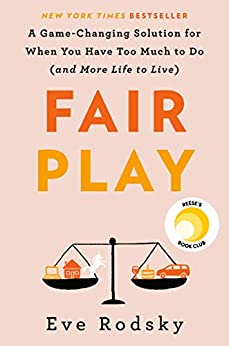
Fair Play by Eve Rodsky was the Reese’s Bookclub pick for October 2019. (Do we read a lot of Reese’s picks, yeah, it seems like it. But, without irony or surprise, Reese Witherspoon HAS EXCELLENT TASTE. And therefore I am unashamed that I allow her to choose my reading material.) [Secondly, as regards Reese and Women’s History month, please watch her 2018 Netflix series Shine On where she interviews groundbreaking women about their journeys. Queen Dolly Parton is the first interviewee. WORTH IT.] Back to Fair Play. The premise of the book is not surprising to most any woman with children: when you become a mother, you become the ‘she-fault’ parent and therefore the manager of the entire household no matter the equity of your household-load before children. Honestly, for many women, household management burdens begin before children enter the picture. Cohabitation with males of our species often involves the eventual, unequal yoking of household chores and other tasks that literally make life move forward for everyone. (Rodsky does state that many households are not heterosexual and may also be childless, but that the concept of Fair Play can be applied to any cohabitating couple. She wrote from her own experience and so I will write as she wrote, but note that Fair Play can be useful to most anyone who feels a disparity in their house as regards chores.)
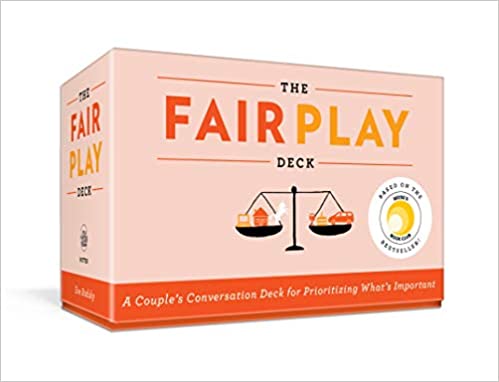
It began when she made a ‘shit I do list’ to give to her husband and that didn’t work very well. Then, Rodsky literally created a card game based on her list and the list of her friends and women in her position with young-ish children at home. They tested it over the course of months, and have packaged it up for us nicely for sale on Amazon. It includes approximately 100 playing cards, 60 of them useful for couples without children, of all the tasks that make life happen and enjoyable. The premise is that you and your partner come together, decide which cards are necessary for your family life to function, and deal them out until every card is gone. The person who accepts the card takes full responsibility for the action on the card, from conception to planning to execution, until cards are re-dealt. It’s an interesting concept and allows both partners to choose which parts of the ‘daily grind’ they accept full responsibility for. Daily grind cards are things like laundry, grocery shopping, cooking, cleaning, etc. Rodsky suggests switching those up very often, no one should be stuck washing dishes for the rest of their life, unless that’s what they truly enjoy doing. Partners also decide on what the standards for those actions will be for their household and the player who is not responsible for the card does not have to concern themselves with the card unless the minimum standard action for the card is not met. I give the book 3 stars because I’m a grown up and got really annoyed at the censoring of expletives in the text, but I really like the idea of full ownership and responsibility for a household chore from conception to planning to execution, rather than one partner being the micromanager for the entire house.
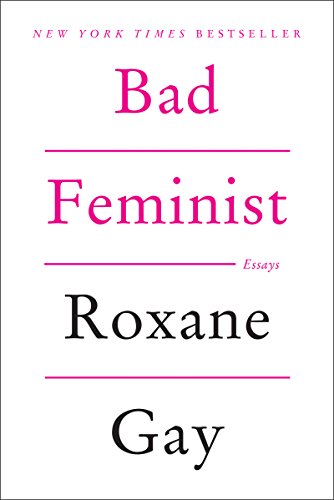
The second title I want to share is one that I’m not quite done reading yet, but at 80% I feel confident in saying that Bad Feminist by Roxanne Gay was worth all the real American dollars I spent to purchase the kindle book. If you remember from Thursday’s post about Rules for Being a Girl, it’s the title that Ms. Klein gives to Marin that sparks the idea of the feminist book club. It was published in August of 2014, so while many of the essays speak to current events, there have been many more unfortunate occurrences against women and people of color since its publication that make it feel a little out of date. Regardless, it’s a fascinating read and I’m so happy I chose to indulge in the purchase of such a seminal title in the modern feminist canon. This quote sums up Gay’s concept of a bad feminist:
I embrace the label of bad feminist because I am human. I am messy. I’m not trying to be an example. I am not trying to be perfect. I am not trying to say I have all the answers. I am not trying to say I’m right. I am just trying—trying to support what I believe in, trying to do some good in this world, trying to make some noise with my writing while also being myself: a woman who loves pink and likes to get freaky and sometimes dances her ass off to music she knows, she knows, is terrible for women and who sometimes plays dumb with repairmen because it’s just easier to let them feel macho than it is to stand on the moral high ground.
So that’s it for me, dear readers, please continue this list of non-fiction women’s history month and feminist titles in the comments below! We want to know what you recommend reading that will help support what we believe in.
~Ashley
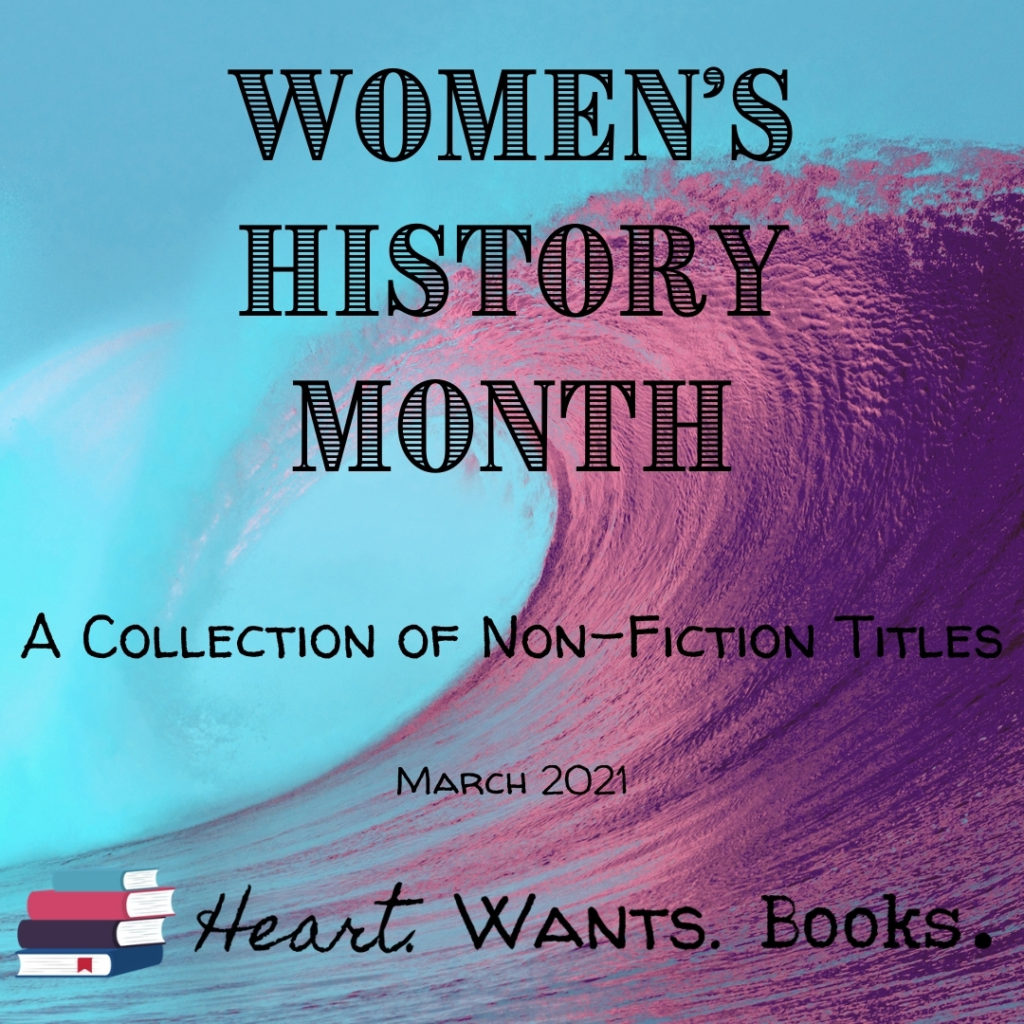
PLEASE SUPPORT US WHEN YOU SHOP BY FIRST CLICKING ON THE IMAGES BELOW:





